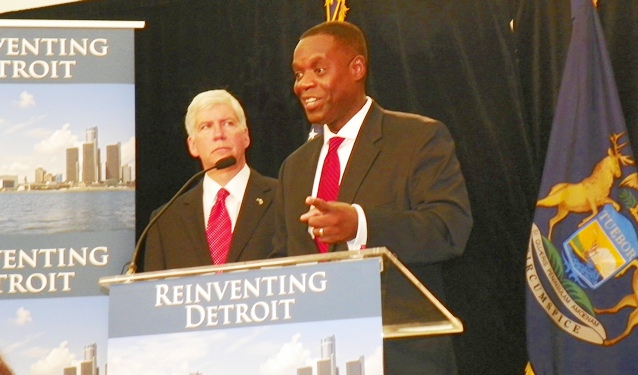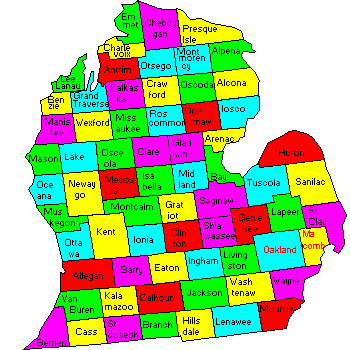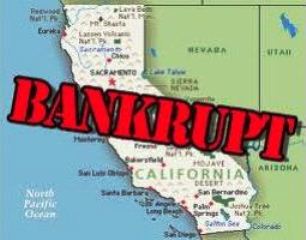
Michigan Gov. Rick Snyder and Detroit EM Kevyn Orr discuss Detroit’s bankruptcy filing July 19, 2013/Photo Diane Bukowski
September 9, 2013
The smallest amount of municipal-bond issuance in Michigan in 10 years is threatening to derail the state’s economic comeback, showing how Gov. Rick Snyder underestimated the fallout from Detroit’s bankruptcy filing.
Bond sales dwindled to $71.5 million in August, the slowest month in the state since at least February 2003, data compiled by Bloomberg show. At least three Michigan localities — Genesee and Saginaw counties and Battle Creek — postponed a combined $131 million of issuance last month after Detroit’s July 18 Chapter 9 filing because interest rates were too high. Oakland County delayed a $350 million deal last week.
Detroit Emergency Manager Kevyn Orr has proposed imposing losses on general-obligation bondholders, drawing scrutiny to debt backed by a local government’s full faith and credit. Frankenmuth, northwest of Detroit in Saginaw County, is offering $1.75 million of limited-tax general obligations Tuesday in one of two long-term sales planned in the state this week.
“At some point, the cities need the money and will have to borrow, but it’s going to be more expensive and that’s bad for the Michigan economy,” said Erik Gordon, who teaches at the University of Michigan’s Ross School of Business in Ann Arbor. “Money that’s paid in excess interest is money that’s flowing out of the state with nothing coming back in return.”
The postponed projects and higher borrowing costs threaten to halt economic gains that have led Snyder to call Michigan the Comeback State. Since the 18-month recession ended in June 2009, Michigan has had the second-best economic growth among U.S. states, trailing only North Dakota, according to the Bloomberg Economic Evaluation of States.
Moody’s Investors Service and Standard & Poor’s raised their outlook on the state’s credit to positive this year, citing growing reserves and balanced budgets. Thanks in part to the federal bailout of the auto industry, Michigan’s unemployment rate has declined to 8.8 percent from as high as 14.2 percent in 2009, Labor Department data show.
The extra yield investors demand to hold Michigan general obligations relative to benchmark munis tells a different story. The eighth-most-populous state’s 0.55 percentage point yield spread over top-rated debt is second-most among 17 states tracked by Bloomberg, behind Illinois. Michigan pays more to borrow than California, even with an S&P rating two levels higher.
“It’s a healthy reaction by the municipal market to take a pause and reassess the risk” in Michigan, said Robert Amodeo, head of munis in New York at Western Asset Management Co., which oversees about $30 billion of local debt. “There’s a lack of appetite at the moment.”
Oakland County, which borders Detroit to the north along Eight Mile, last week delayed a deal because officials fell behind schedule in assembling offering documents, according to Deputy Executive Robert Daddow. The sale would be the biggest in the state since Detroit’s bankruptcy, Bloomberg data show.
The municipality still wants to complete the deal this month, Daddow said. The delay “has nothing to do with Michigan,” he said in a Sept. 3 interview. Moody’s rates the county Aaa.
The county’s postponement slashed the slate of offerings for this week.
Frankenmuth, a city of about 5,000, is the sole Michigan locality issuing long-term debt directly into the market this week, Bloomberg data show. The state’s finance authority plans to offer bonds as soon as Sept. 11 for Bay County, while Waterford School District intends to sell $12.5 million of state-aid backed notes due in a year.
Frankenmuth will offer bank-qualified securities Tuesday via competitive sale and use the proceeds for infrastructure projects.
Charlie Graham, city manager, said he is concerned about what effect Detroit’s filing will have on the sale. The city won’t pay an interest rate higher than 6 percent, according to offering documents.
The drop in Michigan issuance was deeper than in the rest of the $3.7 trillion municipal market, where deals tend to slow in the U.S. summer months. Michigan bond offerings in August were down 84 percent from the three-year average, compared with a 6.8 percent decline nationwide.
Detroit, the birthplace of the automobile assembly line, filed the biggest U.S. municipal bankruptcy July 18, citing $18 billion of debt. Decades of decline had left it too poor to pay billions of dollars owed bondholders, retired cops and current city workers. It has lost about 60 percent of its population since the 1950s.
Detroit is “an incredibly unique situation,” Sara Wurfel, a Snyder spokeswoman, said in an emailed statement. “There continues to be an abundance of sound, smart investments to make in Michigan and our local communities. Michigan’s fiscal house is in order and sound.”
Snyder in a July interview said he expected bond buyers to be “sophisticated investors” and differentiate Detroit’s situation from other localities.
“The economies of most Michigan cities have very little to do with Detroit,” Gordon said. “But their ability to raise finances got linked to Detroit when the governor basically said We don’t think we have to treat general-obligation bonds the way you always thought they would be treated.’ Nobody knows how big of a risk premium to put on that.”
Municipal issuers from Virginia to California are set to sell $5.9 billion in long-term debt this week, the most since the week ended Aug. 9, Bloomberg data show.
At 3.15 percent, yields on benchmark 10-year munis are the highest since April 2011. The interest rate compares with 2.94 percent for similar-maturity Treasuries.
The ratio of the yields, a gauge of relative value, is about 107 percent, compared with an average of 93 percent since 2001. The higher the figure, the cheaper munis are compared with federal securities.
Related:
http://www.crainsdetroit.com/article/20130808/NEWS01/130809883 (Saginaw County)








Hi, do you allow guest posting on voiceofdetroit.net ? 🙂 Please let me know on my email
No, guest articles must be submitted to VOD editor Diane Bukowski at diane_bukowski@hotmail.com. Please call ahead to alert VOD to your submission at 313-825-6126.